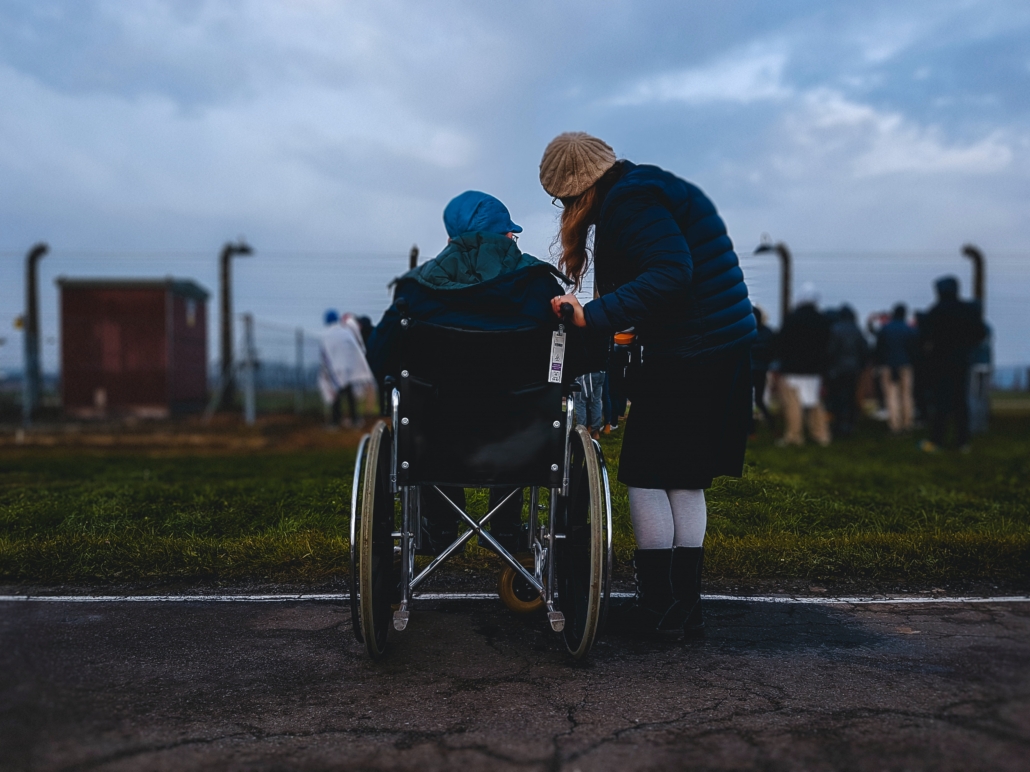Addressing the Link Between Disability and Poverty in Azerbaijan

Azerbaijan, a country with deep historical roots and a challenging past, has been grappling with the complex issues of disability and poverty. The intersection of disability and poverty in Azerbaijan presents a particularly pressing concern. However, rather than dwelling on the challenges, it is essential to focus on the positive steps that are being taken to address these issues. Azerbaijan’s unwavering commitment to inclusivity and social progress not only sets it as a regional exemplar but also positions the nation on the global stage as a model of forward-thinking social development.
A Historical Perspective
Azerbaijan, a nation with a rich historical tapestry and a determined vision for its future, grapples with two interconnected challenges: disability and poverty. The roots of Azerbaijan’s poverty problem are entrenched in its Soviet-era status as a non-subsidized republic, causing economic challenges that persist to this day. The aftermath of gaining independence in 1992-1994 saw the nation contending with multiple obstacles, including military conflicts, resulting in territorial losses and the displacement of more than 1 million Azerbaijanis. Economic underutilization, destructive budget policies and a precarious political situation hindered meaningful reforms and foreign investment, culminating in enduring poverty.
The Current Situation of Disability and Poverty in Azerbaijan
Simultaneously, Azerbaijan shoulders the responsibility of caring for approximately 560,000 people with disabilities, constituting 5.6% of the population, with about 10% of them being children. The prevalence of disability, though relatively low due to the country’s youthful demographics, tends to increase with age, often tied to chronic diseases and mental health issues. Azerbaijan has acknowledged this challenge and shown commitment to the Convention on the Rights of Persons with Disabilities, emphasizing changes in legislation, enhanced disability assessment systems, improved access to education and public services for disabled children, and increased public infrastructure accessibility.
In a January 2023 KEKA survey, a local sustainable development organization in Azerbaijan, it was revealed that 80% of respondents with disabilities were unemployed and actively seeking employment. Shockingly, one in 10 individuals with disabilities had never attempted to apply for a job. The survey, which included 100 respondents with various types and severity of disabilities, also examined their educational backgrounds and income.
Addressing the Interconnected Challenge
By addressing disability and poverty in Azerbaijan inclusively, the country can work towards a more equitable and prosperous society, striving for socioeconomic development that benefits all its citizens. Azerbaijan’s ambitious vision for 2030, outlined in “Azerbaijan 2030: National Priorities for Socio-Economic Development,” places a central focus on creating an inclusive society where all citizens can thrive. The plan emphasizes the importance of an effective and equitable social security system to promote greater inclusivity and ensure the well-being of all members of society. By minimizing poverty, reducing unemployment rates and expanding need-based assistance, the government aims to alleviate hardship for those in need and create additional opportunities for social protection. Stronger protections for the poor and individuals vulnerable to poverty, including those living with disabilities, are at the forefront of this vision.
There is no data about how many people with disabilities are in poverty. The latest official figures show that the national poverty rate decreased from 5.9% in 2021 to 5.5% in 2022. In the first months of 2023, the unemployment rate remained stable at 5.6%. These statistics underscore the government’s commitment to addressing economic disparities and providing employment opportunities for its citizens, including those with disabilities.
Fostering Inclusivity and Empowerment
In line with its commitment to inclusivity and addressing the challenges of disability and poverty in Azerbaijan, the country strives to create accessible social rehabilitation infrastructure for individuals with disabilities. The goal is to empower these individuals to lead fulfilling lives, contributing to society to the best of their abilities. Employment support programs for people with disabilities are set to expand, removing barriers and fostering a more supportive work environment. Furthermore, the plan envisions a comprehensive system of social services tailored to meet the unique needs of socially vulnerable groups. This approach creates equal opportunities for participation in society, reinforcing the belief that inclusivity drives sustainable and holistic growth.
Allocating funds from the state budget for creating accessible environments and transportation options is crucial to cater to the needs of differently-abled individuals, such as wheelchair users and those with visual impairments. Implementing these changes will improve the economic conditions of people with disabilities and allow them to lead fulfilling lives in an accessible society, making meaningful contributions to the economy.
A Bright Future of Inclusivity
In conclusion, the government’s commitment to addressing disability and poverty in Azerbaijan through inclusive policies demonstrates a dedication to the well-being and prosperity of its citizens. By amalgamating efforts to uplift vulnerable segments of the population and striving for a more equitable society, Azerbaijan stands as a beacon of inclusivity and social progress in the region, setting a positive trajectory toward a prosperous and harmonious future. By focusing on poverty reduction, unemployment mitigation and an equitable social security system, Azerbaijan is working towards creating a society where all its citizens can enjoy a prosperous and fulfilling life, leaving no one behind in its journey towards socio-economic development.
– Aydan Talibli
Photo: Unsplash
